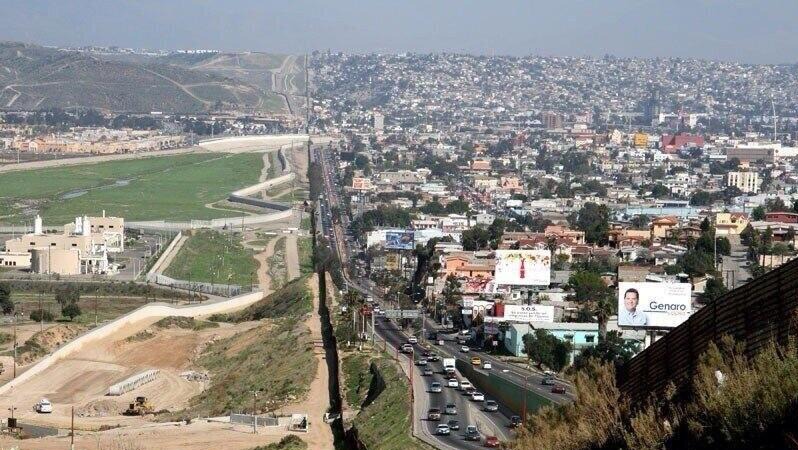There is not a country in the world that does not have a dark side to its history. Call it human nature, but the huge strides made by the human race in the past few centuries are rivaled only by its tragic missteps.
The past shows that the only thing that people believe in more than their right to succeed is the necessity for others to fail. Hitler tried to bring salvation to Germany, but killed at least 4,194,200 people in the Holocaust. The New World provided a birth place for entire nations, and more than 2,000,000 Native Americans died in the process. The founders of the United States could not even establish "The Land of the Free" without the help of tens of thousands of slaves. In each and every case, the intolerance of the ambitious has led to the oppression of the many, whether it be actively or through ignorance, alone.
Today, intolerance shows its face in more specialized terms, such as racism or homophobia, but they all describe the same thing: one group’s denial of another group’s culture, rights, or way of life. That we understand that intolerance has evolved into different species of oppression is necessary, but no fight has ever been won by the merit of simply being able to name all of your enemies. Action needs to be taken, and the World Cup is the perfect vehicle for it.
No sporting event reaches the eyes of more people than the World Cup. This makes it one of the most unifying events on the planet, and, consequently, a massive opportunity for any social movement. So far, only FIFA’s “Say No To Racism” campaign is trying to take advantage, and the effectiveness of that charade has been lackluster at best; just ask Mario Balotelli, Dani Alves, Kevin Prince Boating, Samuel Eto’o, or Ronaldinho. People just want to watch the games, not pay attention to what FIFA tells them to say "no" to.
FIFA does not need to tell everyone else what to do, it needs to show the world what it is doing. That is why The 2026 World Cup needs to be about embracing unity. There is no more perfect symbol in which to manifest this embrace than the U.S.A. and Mexico co-hosting the World Cup in 2026.

The Mexico-U.S. Border. Photo: @SunniHussain | Twitter
An immediate counter-arguement would be that there are plenty of other countries in the world that hate each other more, between whom a co-hosted World Cup would have even greater meaning: North Korea and South Korea, or India and Pakistan for instance. And it is true that a unification of those two rivals would mean more than uniting the U.S. and Mexico. But, while not on the level of the aforementioned pairings, the United States and Mexico certainly have had their fair share of political disagreements, not to mention countless instances of mutual intolerance between the people of either country. But the fact that there does exist a political discourse and robust relations between the two nations on the whole makes it the perfect "test ground" for an idea like this in the rest of the world.
The probability of violence taking place, such as terrorism or riots, due to tension between the U.S. and Mexico is a degree of magnitude lower than, say, if the games were to takes place in Israel and Palestine. That may be an extreme, and in no way is the potential for violence in a U.S.A.-Mexico World Cup meant to be downplayed, but the tensions between Mexico and the U.S. land in a sweet spot. There is enough for legitimate progress to be made, and more importantly appreciated, but not so much as to warrant extreme fear on the part of the organizers and attendees.
Most importantly, however the U.S. and Mexico comprise one of the biggest rivalries in all of international soccer. The World Cup unifies through sport, and the importance of that must not be forgotten. A game of soccer between the United States and Mexico means so much more than almost any other match-up in the world.
The United States is about to explode as a soccer power; Mexico long ago caught soccer fever, but is not yet a global power on the level of their international brethren in Europe or South America. Both countries still have so much room to grow, and so much more to achieve. That potential can be harnessed as a beacon of hope, not only for the future success of Mexico and the U.S. on the pitch, but for the embracing of unity around the world.
If the United States and Mexico can come together and successfully co-host the greatest sporting event on the planet, then maybe they can become the greatest soccer nations in the world. If any animosity between those two nations' populations can be put aside in the name of sport, then maybe the world can embrace unity in the name of a better future.
Without a doubt, the World Cup of 2026 will produce a solitary winner, but the legacy of that tournament can be so much greater than that lone victor's triumph. The real power of soccer does not lie in its ability to judge skill and dictate superiority, no, its greatest power is that it can bring people together. That is a power that should be put to full use in 2026.



